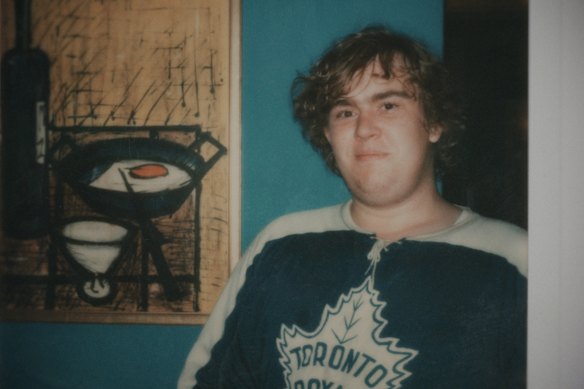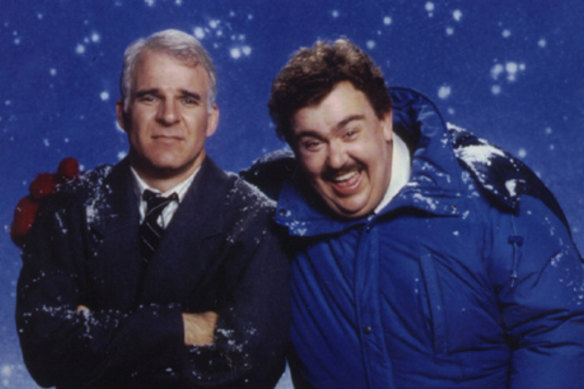John Candy: I Like Me ★★★★
The great strength, and perhaps also the greatest weakness, of this documentary is the depth of talent director Colin Hanks has assembled to share memories of the late Canadian actor John Candy, one of the biggest screen comedy stars of the 1980s.
Steve Martin, Martin Short, Eugene Levy, Catherine O’Hara, Bill Murray, Dan Aykroyd, Macaulay Culkin, Conan O’Brien – even the director’s father, a certain Tom Hanks – all speak in the most glowing terms of a man they considered a friend, a colleague of incredible talent and generosity, and a performer who combined comedic delivery and genuine acting chops to brilliant effect.

The young John Candy, in a still from I Like Me.Credit: Prime Video
That makes it enormously watchable and rich in feeling (and, to a degree, anecdote). But it also pushes it right to the brink of hagiography.
No one, it seems, has a bad word to say about Candy, who died of a heart attack in 1994, aged 43. Thankfully, there are glimpses of the man himself shining at least a little light into the darker corners of his soul, his psyche and his self-image.
The picture that emerges on that score is of a (sometimes) sad clown who never quite overcame the trauma of losing his father (also of a heart attack, at age 35) on his fifth birthday. A man who carried an unshakeable – and, as it happened, well-founded – fear that he, too, was marked for an early end.

With Steve Martin in Planes, Trains and Automobiles (1987).
Candy was troubled, too, by intense self-consciousness about his size. He was reasonably tall, at 188 centimetres, and for most of his life very heavy, but by the end, he was massive. His widow, Rose, recalls buying clothes for him and having to upscale from “double X to triple X to 5X” in size. “It wasn’t easy,” she says.
Son Chris reflects on his father’s prodigious intake – of food, alcohol, cigarettes – as a symptom of, and means of coping with, deep-seated issues. “If you go a whole lifetime eating your feelings, drinking your feelings, smoking your nerves, it shows up, in one way or another,” he observes. “It’s an alarm system, and it’s saying, ‘Hey, there is something wrong here’.”

